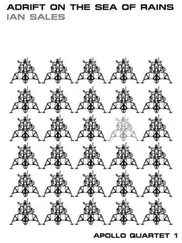* * *
Tazuko Komura was a beautiful twenty-six-year-old Korean woman with an hourglass figure who worked in Tokyo and hated it. Ever since she could remember, she’d been aware of the subordination of women in her country, and her childhood resentment of the fact had passed into teenage anger that had culminated in an adult rage she found almost impossible to contain. She loved modern American movies, for in them there was comparatively little of the utter subservience of women. Of course, she knew not all American women were like the ones she’d seen in the films, but for all they might have to put up with in American men, the American women were free birds compared to their Japanese counterparts.
Tazuko had two brothers, and all her parents’ attention seemed to be taken up by them. She knew her parents loved her too, but in education especially she had seen the two worlds — one for men, the other for women. And at twenty-six, unmarried, she was called a “Christmas cake,” something whose value plummets after December 25. Her schooling had stopped after her high school graduation, and all the money the family had was devoted to the education of her two brothers.
She worked for a time in one of Japan’s largest clothing stores along the Ginza, where only the very rich shopped. She was one of thirty girls who, dressed exactly alike, every morning received instructions for the day, eyes straight ahead like so many robots, and who then spent the day bowing fifteen degrees and saying, “Irasshaimase” —”Welcome”—to thousands of shoppers. A thirty-degree bow would be necessary for introductions, and a forty-five-degree bow for an apology. Unlike her coworkers, every time she bowed she resented it, and could only get through the day by cursing inwardly. She had made the mistake of confiding once to one of the girls, a paato, or part-timer, about how much she loathed bowing and scraping to everyone who passed through the department store’s doors.
“Why don’t you quit?” had been her coworker’s response.
“Because jobs aren’t easy to come by, that’s why.”
Her coworker had called her wagamama —selfish.
“Yes,” Tazuko had replied, shocking her coworker even more. “I want more than a husband, two children, and a lifetime of drudgery.”
“You should not talk like that.”
“No, I shouldn’t,” Tazuko agreed with an overtone of sarcasm.
After that incident she had not complained anymore. She had decided to act. In time she became an agent for North Korean Intelligence. Whatever else the Communists might be, Tazuko had become obsessed with their promise of equality for women. At times her inner voice told her that the Communist world was no Utopia. But whatever its faults, Tazuko believed that at least its women were treated differently — more like men. Pyongyang told her to keep her job as a greeter — it was perfect cover. Who on earth would suspect someone so subservient, bowing low to the holy customers who passed her as if she were a stick of furniture?
* * *
Aboard the Nimitz-class carrier USS Enterprise, two FA-18 Hornets were readying to take off to relieve the two F-18s now on combat air patrol over two hundred miles in advance of the battle group. The fighters were armed with four heat-seeking, Sidewinder air-to-air missiles, two radar-guided Sparrow air-to-air missiles on the wingtips, and a six-thousand-round-per-minute 20mm cannon. In addition, each plane, capable of acceleration from 850 to 1705 kmh in less than two minutes, carried 375 extra gallons of fuel.
The flight deck at first sight seemed a confusion of terrible noise, astringent fuel smells, steam bleeding from the starboard catapult, and groups of men in different colored jackets: red for firefighters and ordnance, green for maintenance, red crosses on white for the medics, white for safety supervisors, blue for aircraft handlers, brown for each plane’s deck captain, green for catapult and arrestor gear crews, grape-vested for refuelers, and yellow for aircraft directors. In front of the water-cooled blast deflectors, a Hawkeye early warning aircraft roared to full power, its twin turboprops twin blurs. As it took off, the F-18s moved into position.
In primary flight control high in the carrier’s island, anticollision teams worked diligently under pressure. Their job was to know and account for the position of every plane coming in, taking off, or parked, the handler closely watching his “Ouija” board, on which there were tiny models of the ship’s planes. The deck was clear, the landing light red, the captain pushing the button for the harsh-sounding warning horn while a quarter mile out to sea the orange rescue Sea King chopper hovered.
Through the blur of rising steam, sea spray, and backwash of exhaust heat, the pilot of the first Hornet prepared to take off and watched the yellow-jacketed catapult officer, his hand up and open, signaling him to go to afterburner. The pilot saluted, then the catapult officer’s left hand dropped behind him, his left leg fully extended at an acute angle to the deck, his right leg bent and his right hand thrust forward, wind speed and temperature and weight already in the belowdeck computer. The deck edge operator pressed the button, and a deck below, the catapult controller let her go, hurling the plane aloft in a cloud of steam — from zero to 150 miles an hour in less than three seconds.
As each of the Hornets climbed, one of the pilots saw a glint of reflected sunlight amid the carrier island’s cluster of air, surface, and target acquisition radar masts. The pilot took it as a good omen, and the next second both Hornets, climbing, disappeared into the base of a huge cumulonimbus cloud, its ice-cream whiteness already bruising with rain.
The Vietnamese divisions fought hard, but Wang and Wei’s PLA infantry and artillery outnumbered the Vietnam regulars. As the pincer closed about Lang Son, the Vietnamese began a tactical retreat, the air full of the whirling and shuffling noise of artillery rounds overhead and the massed stuttering of heavy machine guns and T-56s, the Chinese version of the AK-47s, as the Chinese pressed their advantage.
In Washington the unexpectedly rapid Chinese breakthrough sent shock waves through the Pentagon. It wasn’t supposed to happen this way, and it created a new sense of urgency in the White House. Bypassing the Security Council, stalemated as it was by a Chinese veto, the President, through his ambassador to the U.N., appealed to the General Assembly for assistance in forming a U.N. coalition. He made it clear, however, that if such assistance was not forthcoming, then the United States would act unilaterally and send in troops to assist the Vietnamese, in the interests of preventing a general war in Asia.
It was a sensation, more so because the American offer was carried by CNN to an audience of over 100 million, topping the 94 million who had watched the O. J. Simpson story and the Oklahoma bombing in the mid-nineties.
Whitehall, London
The American offer to send in troops came as no great surprise to the British Foreign Office. The Minister of Defense, Richard Tyler-Jones, had been told by the White House to expect some sort of declaration from the President pertaining to the Chinese-Vietnamese clash.
Tyler-Jones, looking out the window down Whitehall, spoke to his deputy minister, Ronald Nash, without looking at him. “What to do, Nash?”
“Well, I expect we should say something positive. Washington is clearly, however reluctantly, prepared to do battle with the Chinese because they realize that if the Chinese succeed, they’ll not only occupy the border areas between the two countries, but they’ll claim all the oil islands, the Paracels as well as the Spratlys.”
Читать дальше












